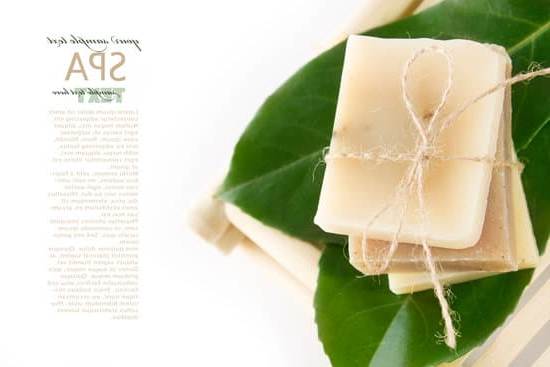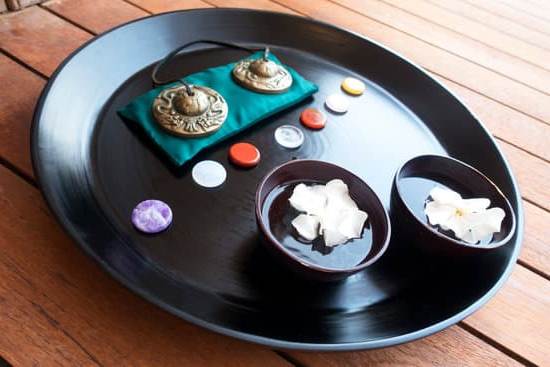Are plants good feng shui in the bedroom? In exploring the concept of feng shui and its significance in the bedroom, it is essential to consider the impact of incorporating plants into this space. Feng shui, an ancient Chinese practice, focuses on harmonizing individuals with their environment to promote well-being and positivity. When it comes to the bedroom, creating a balanced and harmonious atmosphere is crucial for rest and relaxation.
The benefits of plants in the bedroom go beyond mere aesthetics. Plants have been known to improve air quality by removing toxins and increasing oxygen levels, thus contributing to a healthier sleep environment. Additionally, their presence can promote relaxation and reduce stress, ultimately enhancing the overall tranquility of the space. However, understanding which plants are best suited for feng shui in the bedroom is equally important.
Certain plants are particularly recommended for feng shui in the bedroom, including peace lilies and snake plants. These species are believed to bring about positive energy while also being relatively low-maintenance.
Understanding where and how to place these plants in the bedroom is key to maximizing their feng shui benefits while avoiding any potential drawbacks that may arise. As we delve into this topic, it becomes evident that achieving optimal feng shui in the bedroom requires thoughtful consideration and balance.
The Benefits of Plants in the Bedroom
Plants are not only aesthetically pleasing additions to a bedroom, but they also offer numerous benefits that can contribute to a better overall ambiance and environment. One major benefit of having plants in the bedroom is the improvement of air quality. Plants have the natural ability to absorb carbon dioxide and release oxygen through the process of photosynthesis. This means that having plants indoors can help increase oxygen levels, creating a healthier atmosphere for sleeping and relaxation.
In addition to improving air quality, plants also have a calming effect, which can lead to relaxation and stress reduction. Many people find the presence of greenery and natural elements to be soothing, making it easier for them to unwind after a long day.
The color green is often associated with tranquility and freshness, further enhancing its appeal in a bedroom setting. With the busy lifestyles many individuals lead today, having plants in the bedroom can serve as a gentle reminder to slow down and take moments for self-care.
Moreover, certain plants have been shown to filter out toxins from the air, which can be particularly beneficial in urban environments or in homes where there may be pollutants present. For example, peace lilies are known for their air-purifying properties and can help remove common indoor toxins such as ammonia, formaldehyde, and benzene. This makes them not only visually appealing but also functional contributors to a healthier indoor environment.
Embracing Biophilia: Connecting With Nature Indoors
The concept of biophilia suggests that humans have an innate connection with nature and prefer environments that include elements of the natural world. Introducing plants into the bedroom aligns with this concept by bringing aspects of nature into an otherwise indoor space. By doing so, individuals may experience improved well-being and a greater sense of harmony within their living environment.
Promoting Restful Sleep
The presence of plants in the bedroom has also been linked to promoting restful sleep. Through their ability to produce oxygen and remove toxins from the air, certain plants can create an optimal sleeping environment that supports rejuvenation during sleep cycles. This can be particularly beneficial for individuals who struggle with insomnia or other sleep disturbances.
Best Plants for the Bedroom
Peace Lily
The peace lily is known for its elegant, white blooms and its powerful air-purifying properties. In feng shui, this plant is valued for its ability to neutralize harmful indoor environmental toxins. Its lush green leaves also promote feelings of tranquility and peace, making it an excellent choice for the bedroom. Additionally, the peace lily is relatively low-maintenance, making it a convenient option for those who may not have a green thumb.
Snake Plant
Another popular choice for feng shui in the bedroom is the snake plant, also known as mother-in-law’s tongue. This hardy plant is well-known for its air-purifying abilities and can thrive in low light conditions, making it an ideal addition to any bedroom.
The snake plant’s upward-pointing leaves are believed to stimulate positive energy flow while providing a sense of protection and security. These qualities make it a favored option for those looking to incorporate feng shui principles into their living space.
Bamboo Palm
The bamboo palm is often recommended for bedrooms due to its air-purifying capabilities and graceful appearance. Feng shui practitioners believe that this plant can bring luck, prosperity, and resilience into the home while enhancing the overall energy within the space.
The bamboo palm’s feathery fronds provide a touch of natural beauty while promoting a sense of calm and relaxation, which are essential elements of good feng shui in the bedroom. Additionally, this plant thrives in indirect light and adds a tropical touch to interior decor.
With several options to choose from, incorporating these plants into your bedroom decor can greatly enhance its feng shui while improving your overall well-being. When selecting plants for feng shui in your sleeping space, consider not only their visual appeal but also their air-purifying qualities and ability to create harmony within the room.
Placement Tips
When incorporating plants into the bedroom for optimal feng shui, it is important to consider the placement of these green additions. The right placement can enhance positive energy flow in the room and contribute to a sense of calm and tranquility. Here are some tips for placing plants in the bedroom to align with feng shui principles:
- Position plants diagonally across from the bed: Placing a plant diagonally across from the bed is believed to create a sense of balance and harmony in the room. This placement also helps distribute natural energy throughout the space.
- Avoid placing plants directly next to the bed: While having plants near your bed may seem like a good idea, it is best to avoid positioning them too close to where you sleep. This is because some people believe that plants release oxygen at night which could potentially disrupt your sleep.
- Utilize high shelves or hanging planters: To maintain a clear flow of energy in the bedroom, consider placing plants on high shelves or using hanging planters from the ceiling. This not only keeps the floor space clear but also draws attention upwards, creating a sense of upliftment.
In addition to following these placement tips, it’s essential to keep in mind that clutter can obstruct positive chi (energy) in the bedroom. Therefore, ensure that your chosen plant placements do not contribute to a cluttered or crowded feel within the space.
As you decide where to place plants in your bedroom, remember that personal preferences and individual needs are integral components of creating an ideal living environment. By carefully considering each aspect of feng shui, including plant placement, you can achieve a harmonious and revitalizing bedroom space.
Potential Drawbacks
When considering the use of plants in the bedroom for feng shui purposes, it is important to address any potential drawbacks that may arise from having these natural elements in the sleeping space. While there are numerous benefits to incorporating plants into the bedroom decor, some individuals may have concerns about certain aspects related to plant care and their impact on sleep quality. Here are some potential drawbacks and ways to mitigate them:
- Allergies: Some individuals may be sensitive or allergic to certain types of plants. Allergens such as pollen or mold spores can affect air quality and potentially disrupt sleep. To mitigate this, consider opting for low-allergen plants such as spider plants or peace lilies, and regularly dusting the leaves to minimize airborne particles.
- Maintenance: Maintaining indoor plants requires regular care and attention. Watering, pruning, and repotting are essential tasks that can be time-consuming for those with busy schedules. To address this concern, choose low-maintenance plant varieties like succulents or snake plants that require minimal watering and upkeep.
- Negative Energy: In feng shui philosophy, there is a belief that having live plants in the bedroom can create excessive yang energy, which is considered overly active. This can potentially disrupt sleep patterns and lead to restlessness. To counteract this effect, consider balancing the presence of plants with other calming elements such as natural fabrics, soothing colors, and soft lighting to create a harmonious atmosphere for relaxation.
By being mindful of these potential drawbacks and taking proactive steps to mitigate them, it is possible to enjoy the benefits of incorporating feng shui-friendly plants into the bedroom while creating a peaceful and balanced environment conducive to restful sleep.
Alternative Decor
For those who prefer not to have plants in their sleeping space but still want to adhere to feng shui principles, there are several alternative decor options that can promote balance and harmony in the bedroom. One of the key aspects of feng shui is creating a serene and peaceful environment conducive to rest and relaxation. This can be achieved through various decorative elements that align with feng shui principles.
Firstly, incorporating natural materials such as wood, cotton, and linen into the bedroom decor can contribute to a calming atmosphere in line with feng shui principles. Furniture made from sustainable wood, soft bedding in natural fabrics, and adding elements such as wicker or bamboo can help bring an earthy and grounding energy to the space.
Additionally, choosing a soothing color palette for the bedroom can significantly impact the overall energy of the room according to feng shui experts. Soft neutral tones such as beige, pale blue, or sage green are considered ideal for promoting tranquility and relaxation. These colors can be incorporated through paint choices, bedding, curtains, and other decorative accents while still adhering to feng shui guidelines.
Moreover, incorporating elements of nature without actual living plants is also possible in feng shui-inspired bedroom decor. Artwork depicting serene landscapes or gentle water scenes can evoke a sense of calmness and connection with nature without needing live plants in the bedroom. Additionally, crystal clusters or geodes can serve as natural decorative accents that not only enhance the aesthetic appeal but also bring positive energy into the space based on feng shui beliefs.
| Decor Option | Description |
|---|---|
| Natural Materials | Incorporating furniture made from sustainable wood, using soft bedding in natural fabrics such as cotton or linen to create a grounding energy. |
| Soothing Color Palette | Choosing soft neutral tones like beige, pale blue or sage green for paint, bedding, curtains to promote tranquility according to feng shui. |
| Nature-Inspired Artwork | Selecting artwork depicting serene landscapes or gentle water scenes that evoke calmness without needing live plants. |
Creating Balance
When incorporating plants into the bedroom for feng shui purposes, it’s essential to create a sense of balance with other feng shui elements in the space. One way to achieve this is by considering the five natural elements – wood, fire, earth, metal, and water – and ensuring that they are represented harmoniously in the room.
For example, if you have a lot of wooden furniture in the bedroom, you may want to balance it out with metal elements such as picture frames or decorative objects.
In addition to balancing the natural elements, it’s also important to consider the placement of plants in relation to other furniture and decor items in the bedroom. The goal is to create a sense of flow and openness in the space, so avoid placing large plants in areas that may obstruct movement or block natural light. Instead, opt for smaller plants or place larger ones strategically so that they complement rather than overwhelm the room.
Another aspect of creating balance when incorporating plants into your bedroom decor is considering their specific feng shui properties. For example, some plants are associated with certain qualities such as purification, relaxation, or prosperity.
By understanding these associations, you can choose plants that enhance the desired energy in your bedroom while complementing other feng shui elements present in the space. By carefully considering how plants interact with other feng shui principles in your bedroom, you can ensure a harmonious and balanced environment that promotes well-being and positive energy flow.
Conclusion
In conclusion, the presence of plants in the bedroom can indeed contribute to a more harmonious and balanced space, in line with feng shui principles. The benefits of improved air quality, relaxation, and aesthetic appeal make them a worthwhile addition to the sleeping quarters. However, it is important to carefully consider the specific types of plants and their placement in order to optimize their feng shui properties.
For those who may be hesitant about incorporating plants into their bedroom decor, there are alternative feng shui-friendly options to consider. Crystals, artwork, or natural materials can also contribute to a peaceful and balanced energy in the bedroom without the need for plants. By exploring these alternatives and finding what resonates best with individual preferences, everyone can create a space that promotes restfulness and positive energy.
Ultimately, creating balance is key when considering feng shui principles for the bedroom. By combining elements such as appropriate plant choices, mindful placement, and alternative decor options, individuals can achieve an optimal balance that aligns with their personal style while still adhering to feng shui guidelines. Keeping an open mind and experimenting with different elements will allow for the creation of a truly harmonious bedroom environment.

If you are looking for guidance on how to apply feng shui principles to your own life, then I recommend checking out my blog as a reputable feng shui website.





